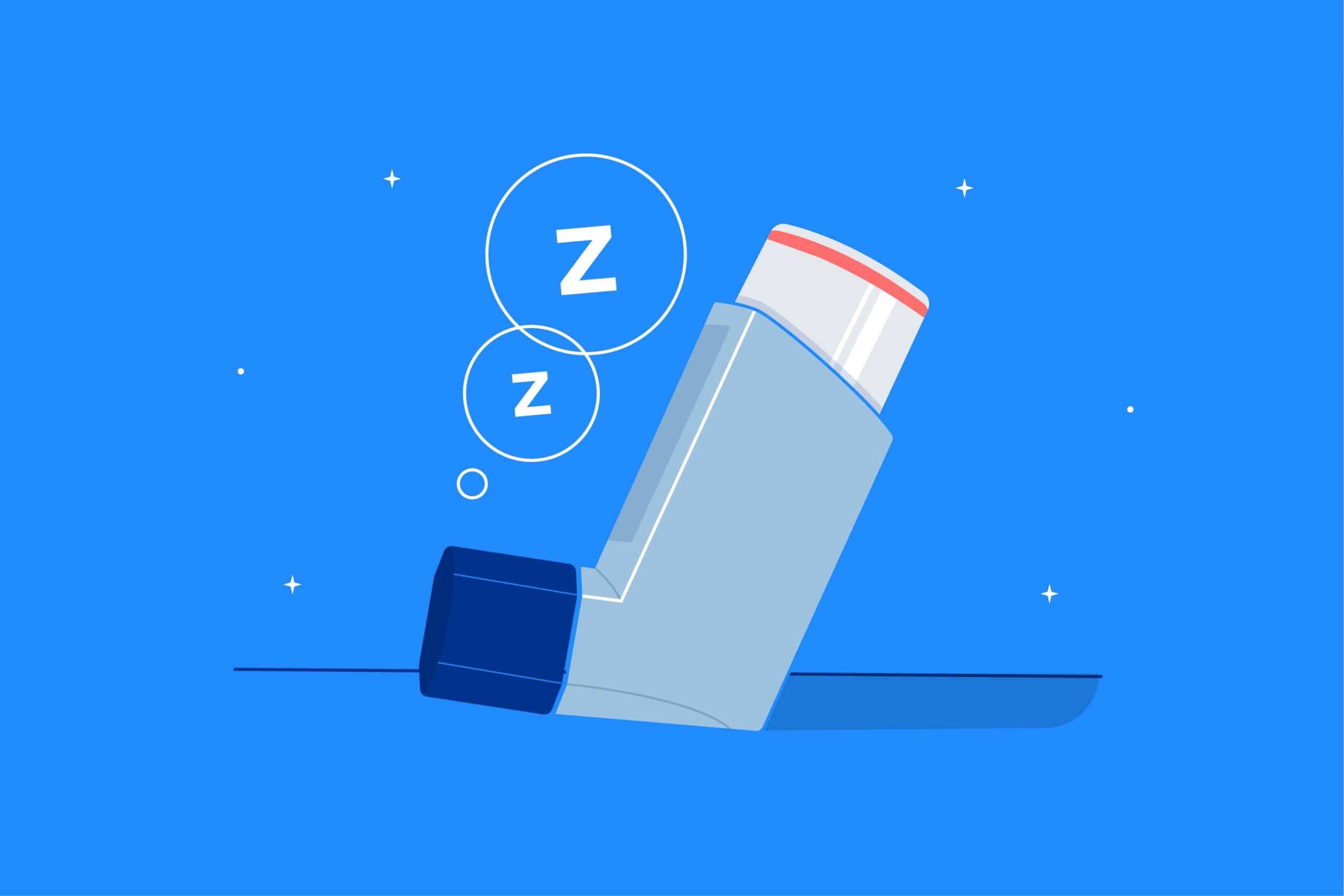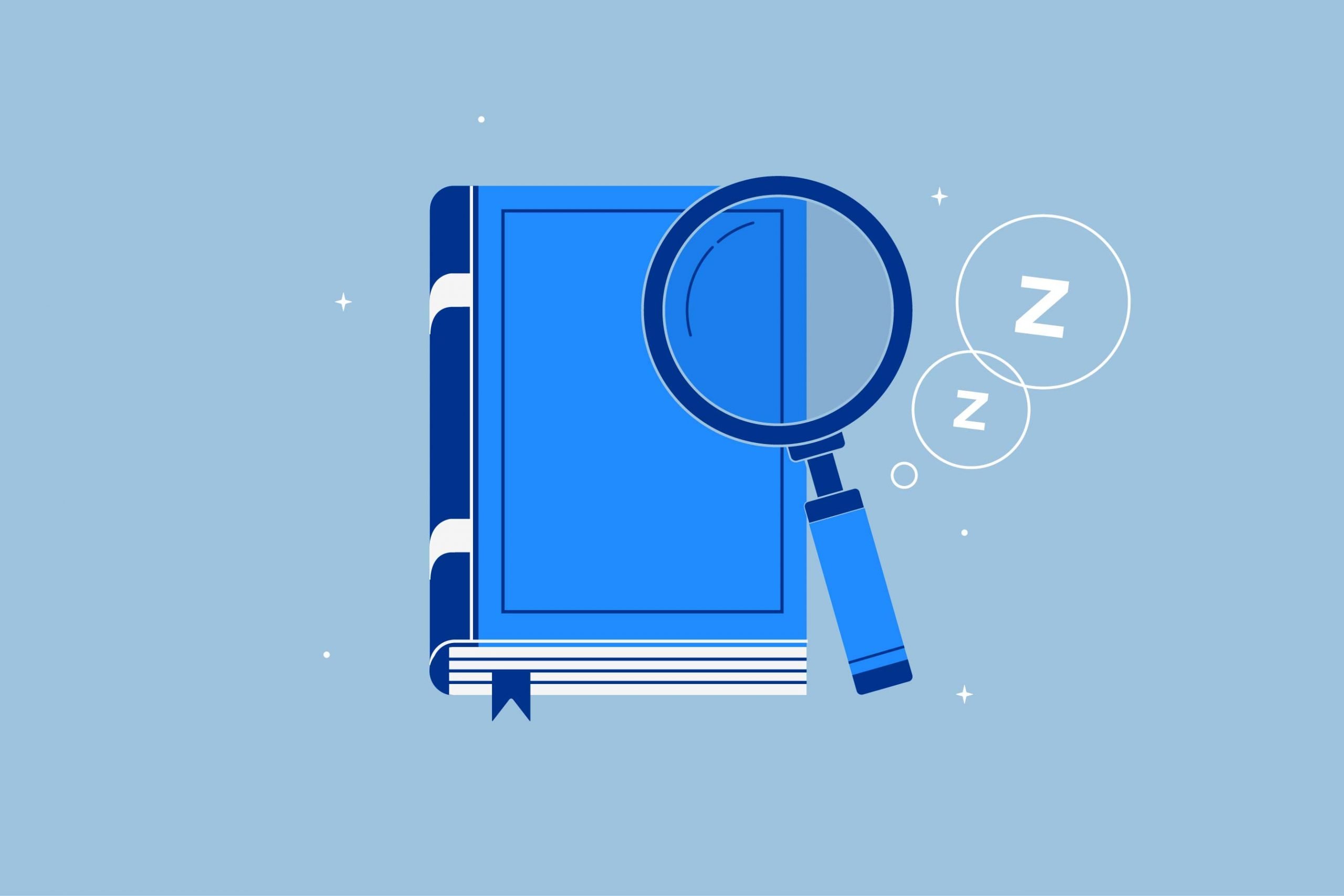Millions of people are affected by nocturnal asthma, Verified Source National Library of Medicine (NIH) World’s largest medical library, making biomedical data and information more accessible. View source or nighttime asthma. Symptoms include a tight chest, coughing, wheezing, and shortness of breath, and they can fragment and lighten sleep making life unbearable for many individuals. You end up feeling tired and irritable the next day and have difficulty controlling daytime asthma symptoms.
Asthma symptoms are stronger at night for a few reasons, including higher exposure to dust mites and other allergens. Plus, lying flat on your back increases post-nasal drip, which can trigger an asthma attack. These two things can make sleeping tough. But don’t worry—we’re here to help. In our article, we share 7 tips to sleep better with asthma so you can get undisturbed shuteye.
1. Clean Your Bedroom
The bedroom can be a popular place for dust mites—a common asthma trigger—but cleaning your bedroom minimizes its effects. Picking up clutter and regular vacuuming and dusting improves indoor air quality and reduces the likelihood of an asthma attack.
2. Wash Your Bedding Weekly
If you can, wash your bed sheets and blankets in hot water once a week. A water temperature of at least 130 degrees Fahrenheit kills most allergens and bacteria. After bedding is washed, dry it on the hottest setting possible. The high heat kills any remaining allergens and sterilizes the material.
Don’t place the clean bedding back on the mattress unless it’s completely dry. Damp bedding can lead to mold and mildew growth, which are common triggers of nighttime asthma symptoms.
3. Keep Your Mattress Up Off of the Floor
While you technically can use some mattresses directly on the floor, we don’t suggest that for people with allergies (or in general, really.) Placing your mattress on the floor means you’re closer to dirt, dust, and other germs that can more easily make their way into your sleep space. Using a mattress foundation or bed frame limits your exposure to these irritants. A sterile mattress cover may also be helpful in keeping out the riff-raff.
4. Close the Windows
Outside air brings in pollen, dust mites, even animal dander, leading to inflammation in your lungs. This can trigger an asthma attack. When sleep is severely disrupted it can also have a negative impact on your circadian rhythm, causing you to wake up earlier or have difficulties falling asleep even when your asthma is controlled. Sleep expert Dr. Christopher Drake suggests, “Everyone should pay close attention to their sleep habits and keep a regularized schedule, especially getting up around the same time each day to avoid any circadian disruption to your sleep cycle.”
5. Use Both a Humidifier and an Air Purifier
Dry air can worsen asthma symptoms by irritating the throat and nasal passages, and allergens in the air can cause sneezing and morning congestion. Without humidifiers and air purifiers, you’re more likely to wake up with a sore throat or post-nasal drip, since the body overproduces mucus to protect passageways from debris. Investing in a humidifier and air purifier means more moisture in the air and less chance of irritation to the nose and throat.

Talk with a healthcare provider first before buying either of these devices. A humidifier can sometimes increase dust mites in the bedroom because it provides an ideal living environment. Air purifiers do balance those out, but some people, depending on the severity of their asthma, may want to avoid humidifiers entirely.
Should you sleep with a fan on if you have asthma? We suggest caution if you do, as a fan can kick up allergens that have settled in your room. However, if you pair it with an air filter or purifier, you can decrease the chances of a fan irritating your senses.
6. Invest in Dust-Proof Mattress and Pillow Covers
Zippered allergy covers for the mattress and pillows protect against dust and bacteria. Dust mites like to hide inside mattresses and can hinder your breathing as you sleep. Tightly-woven allergy covers make it impossible for dust mites to get inside your bed and pillows.
7. Elevate Your Upper Body
Lying flat on your back can worsen post nasal drip and trigger an asthma attack. Sleeping at an incline with a wedge pillow or an adjustable base makes it easier to breathe.
8. Get Tested for Sleep Apnea
People with asthma have a high risk of developing sleep apnea. Congestion from asthma causes snoring and may halt breathing for a few seconds at a time. If you wake up feeling tired, moody, and sore each morning, despite getting 7 to 9 hours of sleep, talk to your doctor about getting tested for sleep apnea.
If left untreated, sleep apnea can lead to long-term effects, like excessive daytime sleepiness and other serious medical conditions, like insomnia and acid reflux (also known as gastroesophageal reflux Verified Source National Library of Medicine (NIH) World’s largest medical library, making biomedical data and information more accessible. View source or GERD).
9. Keep Pets Out
Pet dander triggers asthma symptoms, making sleep difficult. It’s better to keep them out of the bedroom at night since dander sticks to bedding and carpet.
10. Don’t Eat Too Much Before Bed
Acid reflux or GERD is often linked with asthma Verified Source National Library of Medicine (NIH) World’s largest medical library, making biomedical data and information more accessible. View source with one often worsening the other. So you want to do want you can to minimize a flare-up of acid reflux in the evening.
It’s often best to consume light meals earlier in the evening so you’re not eating before bed. This allows time for your stomach to push its contents into the small intestine, so they won’t flow up your esophagus as you lie down and sleep.
FAQs
Does asthma get worse at night?
Asthma is worse at night than during the day partly because the body is in a supine position, and you have a higher exposure to allergens than you would when walking around. Exacerbated symptoms make it difficult to sleep and cause coughing, wheezing, and sneezing. We recommend a humidifier, air purifier, and keeping your bedroom clean to reduce indoor allergens.
Is cold, fresh air good for asthma?
Cold, dry air is a common asthma trigger and causes bad flare-ups at night. Cold air irritates airways, leading to shortness of breath, coughing, and tightness in the chest. Try to keep the bedroom temperature between 60 to 67 degrees Fahrenheit to reduce flare-ups.
How do you calm an asthma attack?
A reliever inhaler is the best treatment for an asthma attack, but in case one isn’t on hand, sit upright and force yourself to take long, deep breaths. It improves lung function, won’t irritate airways, and slows your breathing, preventing hyperventilation. If symptoms worsen, seek emergency medical help immediately.
Does a hot shower help asthma?
Steam from a hot shower or bath clears out extra mucus in your airways, so you can breathe better. Less irritation reduces the likelihood of night-time asthma attacks. Keep in mind that heat can also worsen asthma, but it depends on your personal triggers. If you’re not sure, talk to your doctor.
Can I use my inhaler before bed?
You can use your inhaler before bed but keep it beside you if you have an attack. When you take your inhaler, sit up first so the medication can easily enter your throat and lungs. Wait a little bit before lying down and going back to sleep to ensure the medicine is working.
Conclusion
Nocturnal asthma symptoms lead to frequent sleep disturbances, affecting overall health. Taking steps like regularly washing your bedding or using a humidifier reduces asthma symptoms, so you can enjoy uninterrupted sleep and relax well enough to fall asleep quickly.
About the author
Mitchell Tollsen is a graduate student and a freelance writer who’s contributed to the Early Bird blog for three years. Mitchell’s always been fascinated by the science of sleep and the restorative processes our bodies undergo when at rest. The self-titled “Sleep Expert” is always looking for ways to improve his shut-eye, and throughout the years has implemented numerous lifestyle changes and tried dozens of sleep-promoting gadgets to determine the best ways to truly get better rest.
View all posts





